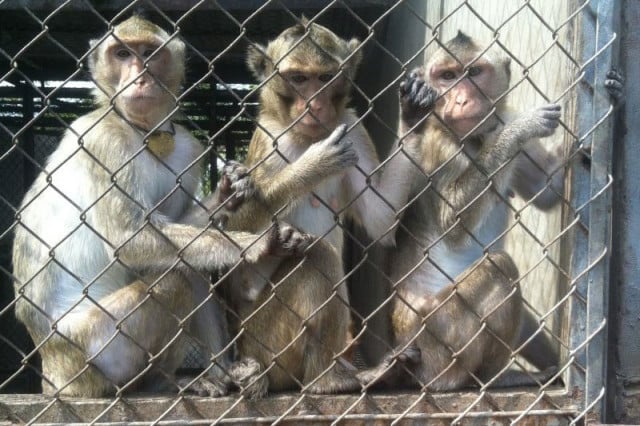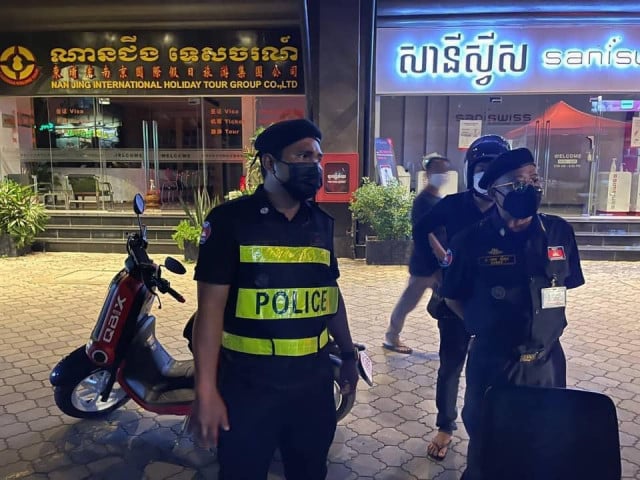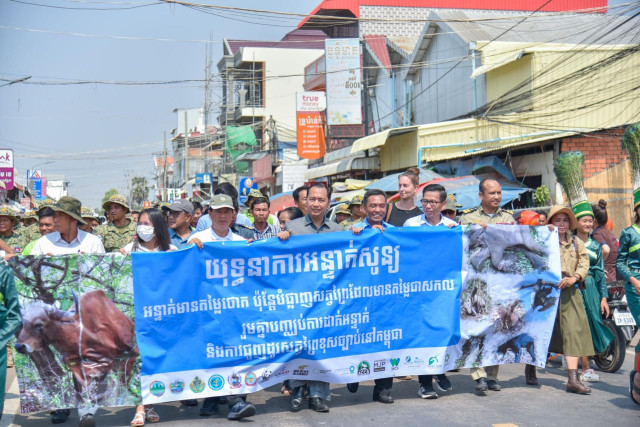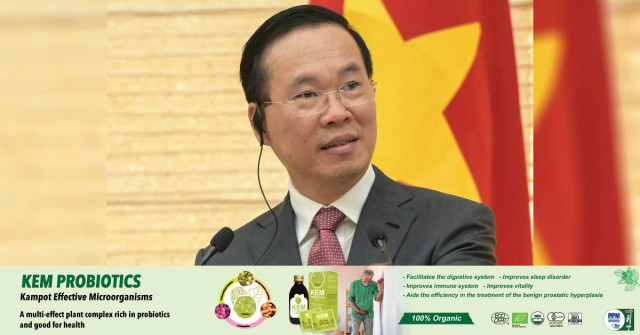Ministry Seeks Justice in Wildlife Smuggling Case

- By Meng Seavmey
- November 18, 2022 4:10 PM
PHNOM PENH – Cambodia’s Ministry of Agriculture, Forestry and Fisheries has denied allegations of wildlife smuggling by the US against senior officials Kry Masphal and Keo Omaliss.
Both have been accused of illegally exporting endangered crab-eating monkeys to the US. Masphal, director of the ministry’s Wildlife and Biodiversity Department, was arrested at John F Kennedy Airport in New York on Nov. 16.
He, Omaliss, 58, director-general of the Forestry Administration at the ministry, and six other people are named in an indictment alleging conspiracy to export the macaque monkeys to the US in contravention of laws protecting rare species.
Masphal was reported to have been involved in this case from late 2017 until September this year.
The ministry said on Nov. 18 that it would seek justice for the officials. It was saddened by the arrest of Masphal, who was on his way to attend a meeting of CITES, the Convention on International Trade in Endangered Species of Wild Fauna and Flora, in Panama.
The ministry would ensure that rules, regulations, and international conventions were respected.
“We uphold CITES convention's principles and laws. It is a big irony that he, who was going to attend an official meeting at the United Nations forum to protect the endangered species of wild fauna and flora, has been arrested under such alleged conspiracy, while both Cambodia and the US maintain good diplomatic relations,” the ministry said.
The indictment says wild monkeys were laundered through a breeding station in Cambodia with the help of corrupt officials. The animals were exported to the US and elsewhere falsely labelled as captive-bred.
However, the ministry said the Cambodian CITES management authority allowed exports based on domestic and international laws and regulations. Import companies in the US were responsible for complying with state procedures.
It said other officials who were in transit to the Panama meeting would make efforts to seek justice.
The ministry said monkeys were not caught in the wild and smuggled out. They were farmed with respect to good hygiene and health standards. With protection from CITES, only “next generation of monkeys” were exported.
San Mala, an environmentalist and an advocate for the Cambodian Youth Network (CYN), said the ministry should not have issued a press release protecting the officials without investigating them first.
Based on the US Justice Department’s statement, the arrest followed a long-term investigation, he said.
As in the previous illegal exports of 211 tonnes of rare timber to Hong Kong, the ministry never revealed the outcome of the investigation, as sought by many NGOs, civil society organizations, environmental activists, citizens and international scientists.
Mala said he did not have high expectations for the ministry’s willingness to investigate the monkeys smuggling. He was “only hoping for the US Justice Department to reveal the truth and provide justice for the protected forestry and wildlife in Cambodia.”
He said Cambodia’s courts and authorities must consider legal action or dismissing the officials involved if the Justice Department establishes their guilt.
“This will protect Cambodia’s legitimacy,” Mala added.
Ministry spokesman Srey Vuthy has yet to respond to questions about any investigation into the accused officials.
Ministry of Foreign Affairs spokesperson Chum Sounry said the ministry and Cambodian Embassy officials in Washington and New York were working on the problem in line with diplomatic procedures and the law.
“The Cambodian Embassy is trying to meet with them and is hiring an attorney,” Sounry said.















